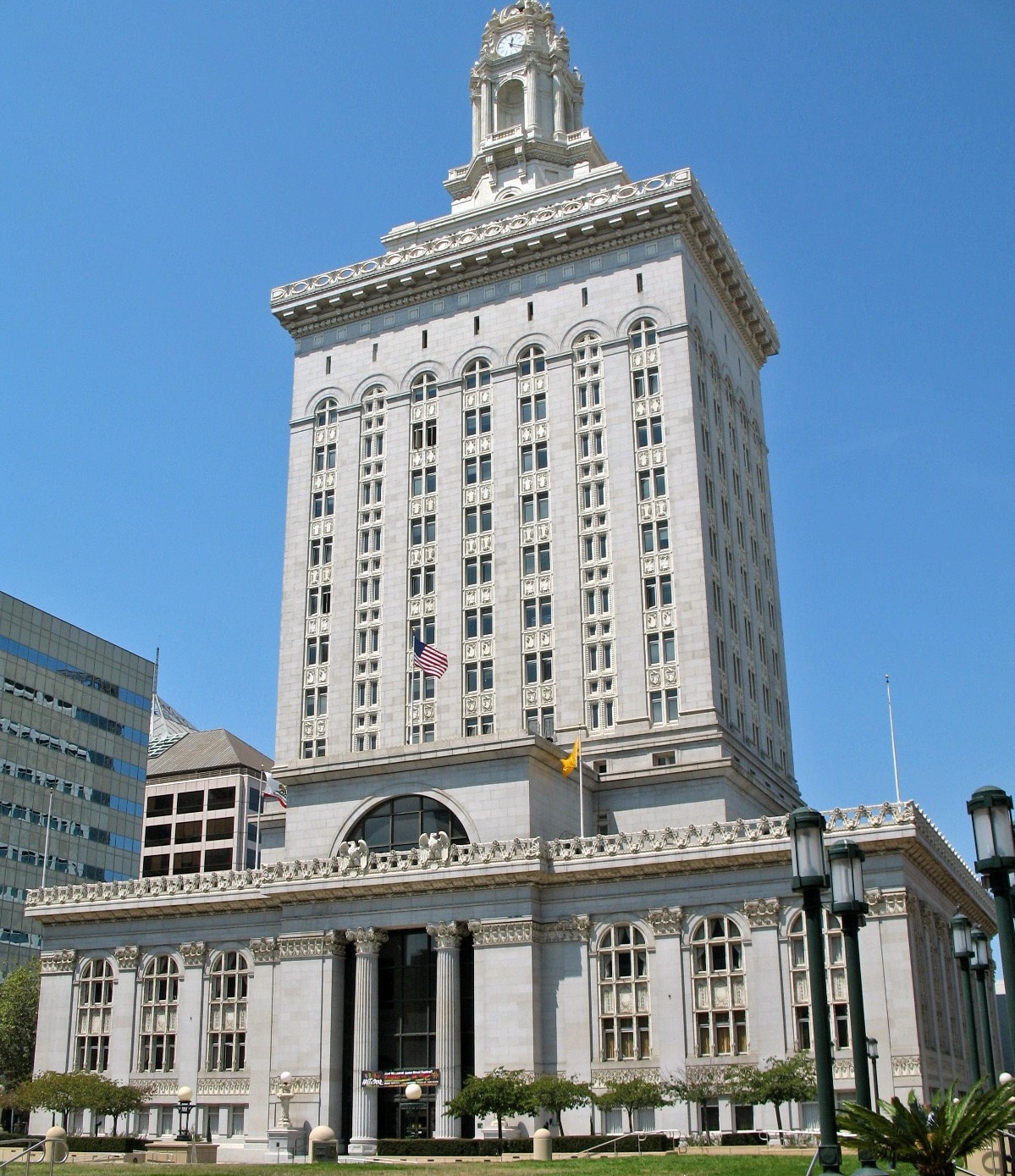SAN FRANCISCO (CN) — Testimony in former Oakland Police Chief Anne Kirkpatrick’s whistleblower retaliation trial on Monday centered on her clashes with members of the Oakland police commission, whose belief in her leadership began to erode as personal conflicts cast a gloom over her tenure.
Jurors heard from former commissioners Ginale Harris, Thomas Smith and Jose Dorado on their decision to oust her without cause in 2020 with Mayor Libby Schaaf’s support, leading Kirkpatrick to sue the city. She claims she was fired for reporting corruption and misconduct within that body, but the commissioners said they thought she was no longer a good fit for Oakland.
Tensions between the police commission and Kirkpatrick came to a boiling point on Oct. 10, 2019, at a police commission meeting that ran late into the night. Around 10:30 p.m., Virginia Gleason deputy director at the Oakland Police Department, took the podium to present data on diversity and recruiting within the department.
In a lengthy clip of the hearing played for the jury, commission chair Regina Jackson stopped Gleason a minute or so in, saying the commission had very specific questions on the demographics of recruits, specifically applicants who had been passed over. Commissioner Ginale Harris echoed Jackson’s comment, adding that she’d been asking for specific data for five months and still had not received it.
The commissioners wanted to know, very specifically, why the department seemed to be having a problem recruiting and hiring Black women, and what the department’s efforts were to turn that around. Gleason floundered, insisting that she be allowed to get through her presentation, replete with quantifiable data and bright circle graphs.
"OK, I think there's a real challenge and part of it has to do with the fact that quantifiable information doesn't always get you what you're looking for. People get you what you're looking for,” Jackson interjected. “So I'd be happy to do a focus group for you with Black and brown young people who will tell you why they do or don't want to join the Oakland Police Department and that will be far better than all these round, colorful things.”
“I find that beyond offensive and misrepresentative of what I'm trying to talk about,” Gleason said.
She immediately seemed to recognized she’d said the wrong thing. She backtracked, showing slides that displayed the department’s efforts at recruiting through mobile ads and posters on public transit. “We are trying to try different ways of advertising to people and then seeing if they work.”
Jackson interjected, “But your posters aren't reaching out and touching people, that's my point. If you want to recruit people, people recruit people, not posters.”
Harris and Jackson began peppering her with questions, growing more frustrated when Gleason continued to equivocate and deflect.
“This representation, this what you're doing right now is disgraceful. It’s shameful and you should be ashamed of yourself," Harris said.
Finally, Kirkpatrick stepped up to the podium and chastised Jackson and Harris.
"I am not going to have you call her out as disgraceful. I am not, as the chief of police, as long as I'm the chief, you may not call her out,” Kirkpatrick said, to which Jackson replied: “It’s not she, it's the work that was presented."
Kirkpatrick said Gleason had to cancel a planned vacation to see her grandchildren in order to present that night, and that Gleason was owed an apology for their treatment of her.
“She will not get one from me,” Harris said. “And neither will you.”
Eventually, Commissioner Smith intervened. “I personally want to say I apologize that you have to cancel your tickets, that you had to go through all of that.”








